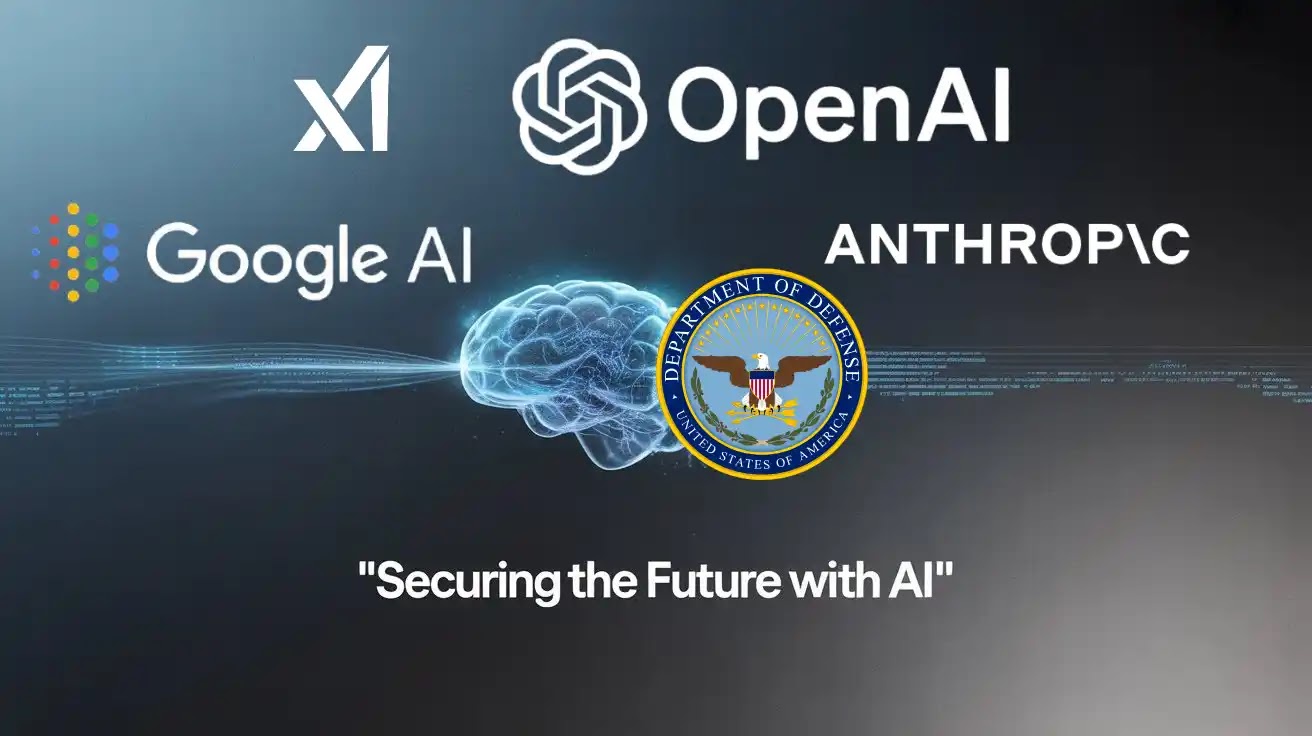In a bold move that signals just how central artificial intelligence has become to global security, the US Department of Defense has signed major deals with four of the world’s most advanced AI companies. OpenAI, Google, Anthropic, and Elon Musk’s xAI have each secured a $200 million contract to help develop cutting-edge AI capabilities for national defense. The announcement was confirmed by the Pentagon’s Chief Digital and Artificial Intelligence Office, marking a historic collaboration between government and private tech giants.

At the heart of this initiative is the development of what the Pentagon calls agentic AI systems. These are not just software tools, but autonomous agents designed to perform complex tasks with minimal human input. They will be deployed across a wide range of operations, from battlefield coordination to data analysis and mission planning. The systems are expected to enhance decision-making speed, reduce response times in crisis situations, and support more efficient management of defense resources.
The effort represents a broader strategic shift as the US aims to maintain its technological edge in a rapidly evolving global landscape. As geopolitical tensions rise and digital warfare becomes more sophisticated, the Department of Defense is looking to AI not just as a tool, but as a central pillar of future military infrastructure.
Each of the selected companies brings a unique strength to the table. OpenAI is known for its leadership in natural language processing and generative AI, technologies that could revolutionize communication and analysis in high-stakes environments. Google, through DeepMind, has led groundbreaking work in reinforcement learning and predictive modeling. Anthropic’s reputation for building safe and interpretable AI aligns closely with the Department’s commitment to responsible development. Meanwhile, xAI, Elon Musk’s newest venture, brings a disruptive and fast-moving energy to the mix, with big ambitions to compete with the industry’s most established players.
These partnerships are part of a larger effort guided by recent policy direction from the White House. In April, the Office of Management and Budget released a directive urging federal departments to embrace competitive and ethical AI development. The goal is to ensure that American AI innovation benefits not just national defense, but the broader public and technological landscape.
The contracts follow an earlier $200 million deal between OpenAI and the Department of Defense to prototype advanced AI systems tailored for mission-critical use cases. This new collaboration extends the scope of that work, bringing multiple leaders together to tackle some of the toughest challenges in digital defense.
Officials have been clear that these AI systems will not simply automate routine tasks. They are being designed to reshape how the US approaches defense in an era where speed, data, and autonomy define success. From logistics to surveillance to strategy simulation, AI will be integrated into every layer of military operations.

While the exact details of each company’s contribution remain classified, the message is clear. The United States is no longer experimenting with AI. It is operationalizing it at the highest levels of government with support from the most powerful AI labs in the world.
This collaboration is likely to set a precedent for how democracies invest in secure, ethical, and effective artificial intelligence. It also raises important questions about transparency, oversight, and the balance between innovation and control in military tech.
For now, the world is watching as the most advanced minds in AI come together with one of the most powerful defense systems in the world. What emerges from this partnership could shape the future of warfare, diplomacy, and global security in ways we are only beginning to understand.
Follow Tech Moves on Instagram and Facebook for exclusive updates on AI-defense partnerships, emerging tech in national security, and the tools shaping tomorrow’s world.














